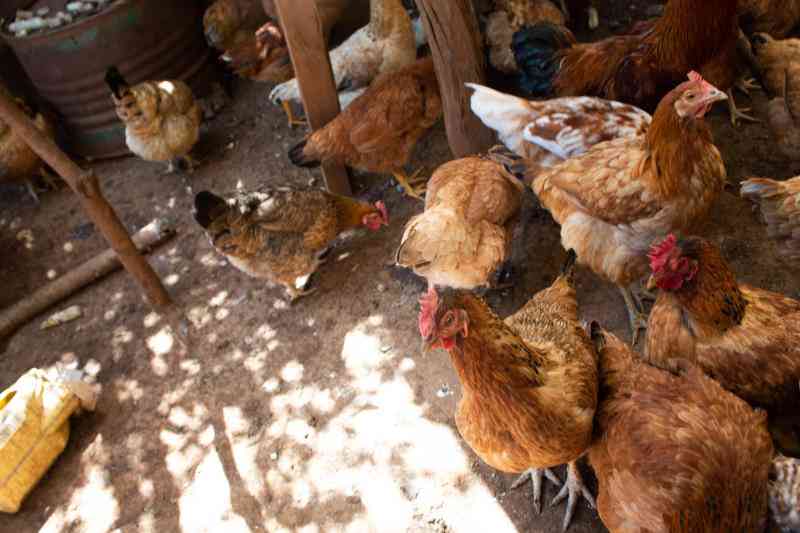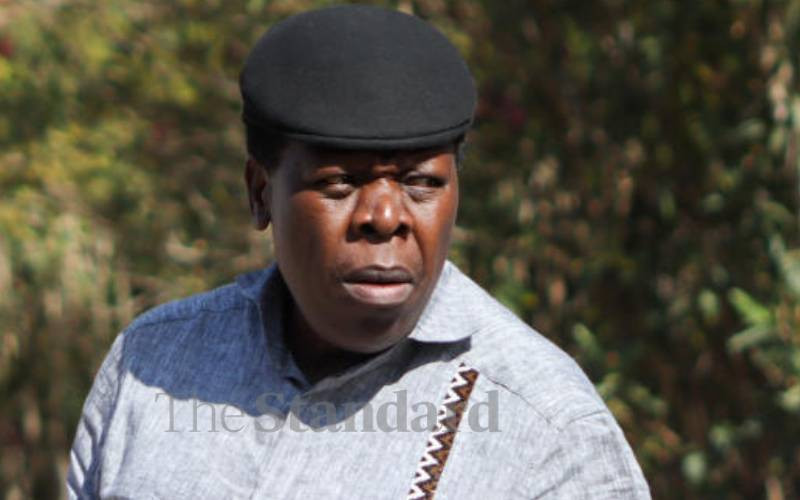The Government is committed to developing strategies to boost the economy through agribusiness, Water and Irrigation Cabinet Secretary Eugene Wamalwa has said.
Mr Wamalwa spoke when he represented President Uhuru Kenyatta during the official opening of the Annual Lake Region Agribusiness Investment Conference and Exhibition at Vihiga High School yesterday.
He said the Lake Region Economic Blueprint, which he officially launched in April, recognises agriculture as the key productive pillar for the transformation of the basin’s economy.
“Despite the increasing pressure on the national budget, we continue setting aside a substantial amount of money for agriculture,” he said.
He noted that agriculture’s contribution to the economy in the Lake region is far much higher than the national average, yet despite its contribution, it continues to under-perform.
“In this region, like many other parts of the country, our farmers continue to struggle with old approaches to agriculture. This must change,” he said.
He noted that there was need to adopt new technology to maximise production.
National potential
He said the ongoing process of setting up fertiliser production companies in Eldoret and Busia would help supply quality and organic fertiliser to farmers.
He noted with concern that the country has only achieved about 20 per cent of their national potential in irrigation.
He said the country has only 375,000 hectares under irrigation and can do better by exploring sections of the Lake region that have remained dormant, such as Ahero, Kano Plains and Budalang’i.
“We have a milling plant in Ahero that is underperforming because the region cannot produce enough rice. We do not have to import rice from Pakistan each year, when we have the potential to produce these products here by ourselves,” he said.
He observed that the country is producing only 120,000 tonnes of rice, while the demand is 450,000 tonnes. This means that there is a 330,000 tonnes deficit, which is filled by imports.
He further said that the country is forced to import about 10 million bags of maize every year, because it produces between 20 and 30 million bags, yet it needs over 40 million bags per year.
He added that the country is committed to the African Union Maputo declaration, as every year it commits a substantial amount of money to agriculture.
Stay informed. Subscribe to our newsletter
“As we explore new and innovative ways to modernise agriculture and agribusiness, I want to urge delegates to devise ways and means of attracting and retaining our young people to agribusiness,” he said.
He noted that the youth must be at the centre of agribusiness, if it has to thrive and most of them kept busy.
“A holistic and multi-sector stakeholder approach to the growth and development of various value chain in the region is the only route available towards revitalising agriculture in the region,” he said.
He urged the counties to attract and retain the private sector so that they can invest in the region effectively. Wamalwa observed that much as the Lake region is endowed with plenty of resources, it was still wallowing in poverty and depending on imported produce.
Fish production
“The Lake region has great potential in terms of production of fish, rice, maize, tea leaves, sugarcane, and has lots of rain throughout the year. Despite all these, the region has many people living below the poverty line,” he said.
The Standard Group which is a partner in the conference pledged to work with the devolved units to achieve development agenda in the region.
Standard Group Chief Executive Officer Sam Shollei through the group’s Corporate Affairs Director Charles Kimathi said the company is willing to partner with counties to provide solutions to ICT related issues.
“Standard Group is committed to working in partnership with county governments to advance and achieve the development agenda they have for their people,” said Mr Kimathi, who was accompanied by the group’s Weekend Managing Editor Enoch Wambua.
He asked county governments to count on the Standard Group in their bid to improve the lives of the citizenry.
“Standard Group is a partner that counties can depend on for their devolution journey. We will walk with you as you strive to transform the lives of the people in this country,” he said.
He added: “We will support you by offering creative communication solutions through our multi-media platforms which include broadcast, print, online and targeted publications like Smart Harvest.”
 The Standard Group Plc is a
multi-media organization with investments in media platforms spanning newspaper
print operations, television, radio broadcasting, digital and online services. The
Standard Group is recognized as a leading multi-media house in Kenya with a key
influence in matters of national and international interest.
The Standard Group Plc is a
multi-media organization with investments in media platforms spanning newspaper
print operations, television, radio broadcasting, digital and online services. The
Standard Group is recognized as a leading multi-media house in Kenya with a key
influence in matters of national and international interest.
 The Standard Group Plc is a
multi-media organization with investments in media platforms spanning newspaper
print operations, television, radio broadcasting, digital and online services. The
Standard Group is recognized as a leading multi-media house in Kenya with a key
influence in matters of national and international interest.
The Standard Group Plc is a
multi-media organization with investments in media platforms spanning newspaper
print operations, television, radio broadcasting, digital and online services. The
Standard Group is recognized as a leading multi-media house in Kenya with a key
influence in matters of national and international interest.








